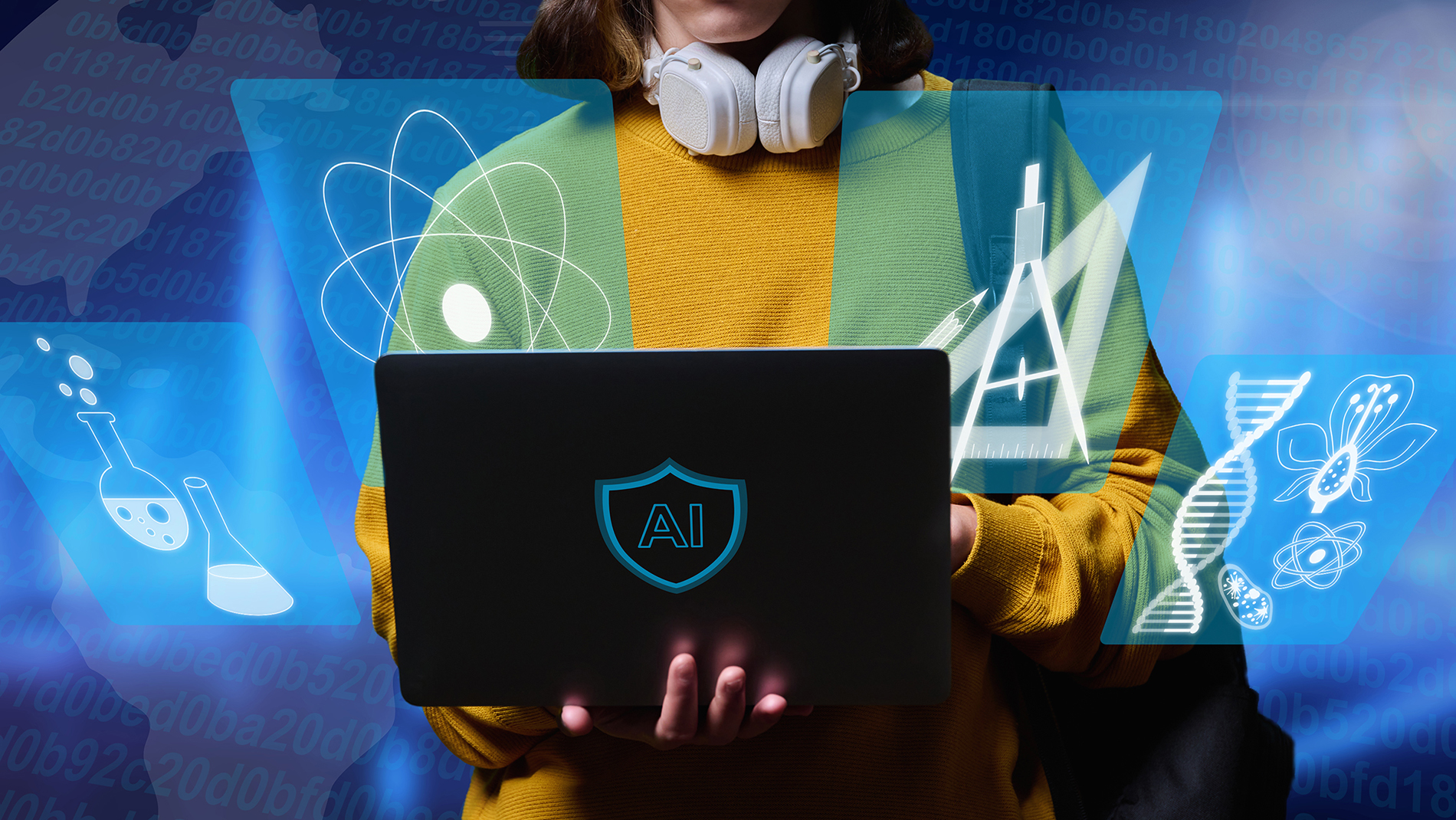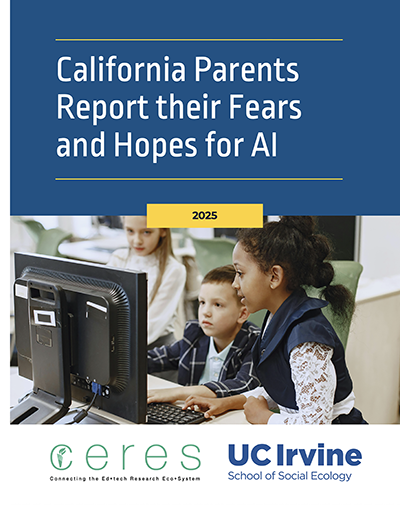
Research results highlight the need for clear guidelines and regulations
A new study conducted by University of California, Irvine researchers sheds light on Californians’ perceptions and concerns regarding the impact of generative AI on children and adolescents.
 The study – which surveyed 2,143 adults across the state, including 870 parents and guardians – reveals a complex landscape of opinions and usage patterns.
The study – which surveyed 2,143 adults across the state, including 870 parents and guardians – reveals a complex landscape of opinions and usage patterns.
“We found that many Californians see potential benefits of AI for children’s education and future careers, but they also have major concerns, especially about its impact on children’s problem-solving skills and academic integrity,” said Kelli Dickerson, UC Irvine research scientist and lead investigator of the study.
Among the findings:
- One in four parents reported that their teens used generative AI every day, with parents who attended college and have higher incomes reporting the most use among their children.
- Parents of school-age children and younger adults were more optimistic about AI’s benefits for children’s learning and career readiness.
- The use of AI tools to check schoolwork was widely perceived as cheating, whereas receiving help from peers, parents or tutors was not.
- California adults did not trust anyone – including the government, education systems or BigTech to regulate AI when it comes to their children.
 Gillian Hayes, UC Irvine Kleist Professor of Informatics and a co-author of the study, emphasizes the divide in perceptions about cheating: “There is a bias here about getting help from a person versus an AI that may raise concerns about access in education. Everyone can get access to an AI tutor, particularly one vetted and approved by the school, but this might be viewed as cheating. Not everyone has access to the kinds of human support that were not seen as cheating. We need to ask, who can afford a tutor and who can’t? Which parents have the time and education to help their children and who doesn’t?”
Gillian Hayes, UC Irvine Kleist Professor of Informatics and a co-author of the study, emphasizes the divide in perceptions about cheating: “There is a bias here about getting help from a person versus an AI that may raise concerns about access in education. Everyone can get access to an AI tutor, particularly one vetted and approved by the school, but this might be viewed as cheating. Not everyone has access to the kinds of human support that were not seen as cheating. We need to ask, who can afford a tutor and who can’t? Which parents have the time and education to help their children and who doesn’t?”
The study, produced by CERES (Connecting the EdTech Research EcoSystem) and UC Irvine’s School of Social Ecology, also highlights the need for clear guidelines and regulations.
“California adults are telling us that they do not trust anyone, including the government, schools, or tech companies to regulate AI when it comes to their children. But, without a trusted body to take this on, our children’s future with AI will remain in the hands of Big Tech,” said Candice Odgers, UC Irvine Chancellor’s Professor of psychology and a co-author of the study.
The research provides a crucial starting point for policymakers, educators and parents navigating the rapidly evolving AI landscape, Dickerson, Hayes and Odgers said.
It underscores the importance of developing ethical and developmentally appropriate AI technologies while addressing concerns about opportunities and potential risks, they added. “As these technologies become more integrated into children’s lives, clear policies, guidance, and safeguards are needed to ensure that all children benefit from generative AI safely.”
The National Science Foundation and Google funded the research.
— Mimi Ko Cruz
Photo credits: Meredith Gradishar (Dickerson) and Steve Zylius (Hayes and Odgers)